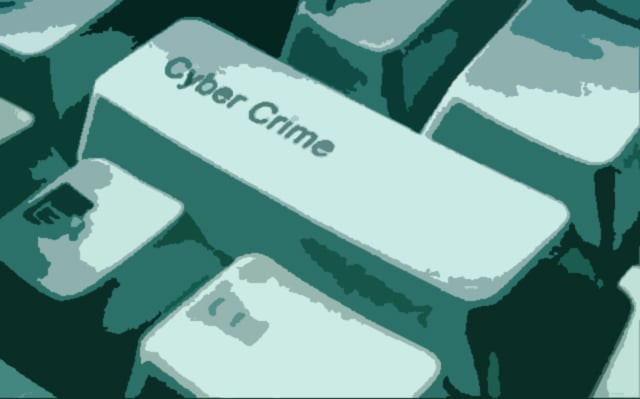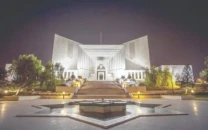NA committee approves controversial Cyber Crime Bill
State minister for information technology says there is no substance in criticism on legislation

STOCK IMAGE
The parliamentary panel adopted the Cyber Crimes Bill 2015 without considering objections as serious or merited.
A majority of members failed to turn up at the meeting, paving way for Pakistan Muslim League-Nawaz (PML-N) legislators to surpass those critical of the legislation, including the media, internet service providers, NGOs and members of civil society.
State Minister for Information Technology Anusha Rehman told The Express Tribune it was incorrect to say that the legislation is non-transparent and non-consultative.

Safeguards have been ensured against any expected misuse, and there is no substance in the criticism on the legislation, she assured.
She further argued that once the legislation is passed, Pakistan would succeed to convince Google to launch YouTube.com.pk -- a local version of the YouTube.
Read: Cyber crime legislation: Independent agency proposed in final draft
Bolo Bhi Director Farieha Aziz said the draft bill in its current form will seriously impact internet users, the ICT industry, print and electronic media, academicians, researchers, the legal community and the educated youth as well as ordinary citizens of Pakistan.
MNA Talal Chaudhry said we should trust that our institutions will not misuse this new legislation, while Major (retd) Tahir Iqbal termed the bill a perfect legislation, saying one out 100 officers may misuse the law.
Meanwhile, arguing against freedom of speech and in favour of the legislation, Captain (retd) Muhammad Safdar said there is no concept of freedom, except the one that is defined in Quran and Sunnah.
Read: Legislative bungling: In a bill about cybercrime, MoIT inserts clauses legalising censorship
The only legislator not part of the PML-N at the committee meeting was Syed Raza Abedi of the Muttahida Qaumi Movement. He raised objections regarding the various sections of the proposed legislation. However, the PML-N members seem in a hurry to approve the draft of the bill.
On a lighter note, Abidi commented that such a mechanism for social media would help contain the ‘online brigade’ of the Pakistan Tehreek-e-Insaf.
.
What the Bill entails
- In Sections 17 and 18, political criticism and political expression in the form of analysis, commentary, blogs and cartoons, caricatures, memes, has been criminalised.
- As per Section 19, any person who tests system security will be an offender
- As per section 20, ‘obscene’ or ‘immoral’ messages on Facebook, Twitter, and other social platforms, have been made offenses without defining obscenity or immorality; thus, giving sweeping powers to investigating agencies to implicate anyone on these charges.
- Section 20 also states posting of photographs of any person on Facebook or Instagram, without their permission is an offence.
- Under Section 21, sending an email or message without the recipient’s permission will become an offence.
- In Section 26, the definition of ISPs and telcos has been expanded to now include any place that offers the public access to internet, i.e. restaurants, malls, hotels, offices, airports, stations.
- Section 31 gives the government/PTA unfettered powers to block access or remove speech not only on the internet but transmitted through any device, limiting the media’s freedom and citizens’ right to expression.
Stepping on fundamental rights?
Fundamental principles of law, such as requiring intent, especially malicious intent, to be established for conviction, have not been followed; in fact, the requirement has been omitted from the modified version of this bill.
This is true even for offences such as Cyber Terrorism, which carries a penalty of 14 years imprisonment. There is grave danger of white-hat hackers, hobbyists, people who hack for academic purposes to identify security flaws in systems, or teenagers who for recreation (albeit wrongly) deface websites, could end up getting convicted as cyber terrorists.
Meanwhile, checks and balances on investigation agencies and its officers have been removed. For instance, requiring an investigation officer to obtain a warrant from court for search, seizure or arrest on the basis of a list of qualifications he/she was required to present before court, making clear reasons why the warrant should be issued, no longer exists.
Similarly, other safeguards that were previously built in, such as protection against self-incrimination and an accused’s right to know the charges against him/her, have also been omitted.



















COMMENTS
Comments are moderated and generally will be posted if they are on-topic and not abusive.
For more information, please see our Comments FAQ